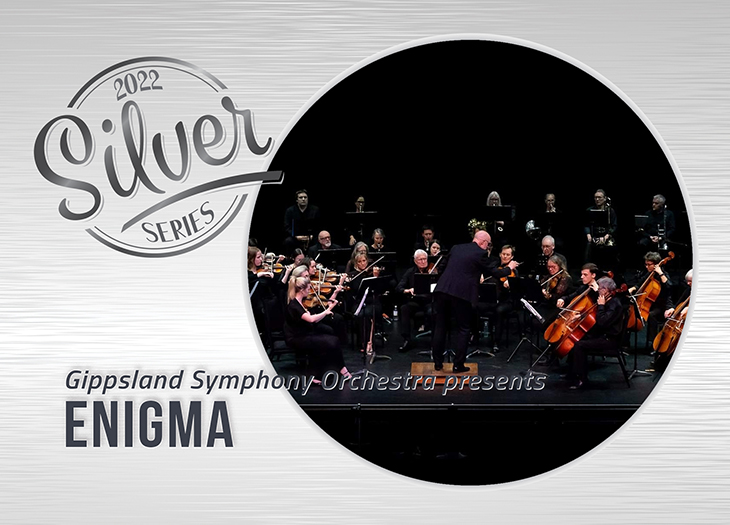Gippsland Symphony Orchestra - Enigma

Enigma Variations – Edward Elgar
“Something might be made of it’ and with these immortal words one of the most admired and acclaimed piece of music began. Edward Elgar, whilst playing the piano one night after a day of teaching stumbled upon the thematic idea of his most famous piece the Enigma Variations. He started to play the theme in variations saying to his wife Alice, Powell (Variation II) would do this, or Nevison (Variation XII)would do it like this. Elgar himself describe it as being ‘commenced in a spirit of humour and continued deep seriousness’ and he proceeded to compose fourteen variations of the theme all dedicated to his friends and of course Alice, his wife.
Much has been made about the Enigma but Elgar wrote “The enigma I will not explain—its ‘dark saying’ must be left unguessed, and I warn you that the apparent connection between the Variations and the Theme is often of the slightest texture; further, through and over the whole set another and larger theme ‘goes,’ but is not played—so the principal Theme never appears. . . .” Many have pondered what the Enigma is however, what isn’t in dispute is that the Enigma Variations is a classical music masterpiece.
English Folk Song Suite – Ralph Vaughan Williams (1872 – 1958)
Vaughan Williams, like Elgar was a profoundly proud British composer. He was born and grew up in the Gloucestershire where he had an idyllic childhood. He is a famous military band composer and his English Folk Song Suite, which he composed in 1923 has become a cornerstone of the military band repertoire. The suite was originally commissioned by the Royal Military School of Music and was titled Folk Song Suite, he added the ‘English’ dedication after he had orchestrated it for full orchestra. The suite is a collection of folk songs from Norfolk and Somerset including Seventeen Come Sunday, Pretty Caroline, Green Bushes, Blow Away the Morning Dew to name a few. The form is March, Intermezzo and March and it originally had a fourth movement which the composer removed from the suite and published that as a separate work.
A Fugal Overture – Gustav Holst (1874 – 1934)
Holst shares some traits with Ralph Vaughan Williams, both born in Gloucestershire, and both shared a love of English folk music. Holst was a composer, trombonist, arranger, and teacher. His best-known orchestral piece is The Plants Suite however he composed over a wide range of genres and styles. His initial influence come from the works of Wagner and Strauss however once the revival in interest of English folksongs he developed his style of composition. He was a teacher, in the words of his colleague Vaughan Williams, a great one and built a strong music ethos at Morley College.
His Fugal Overture is an expansive exploration of the Fugal form. The piece begins with a repetitive rhythmic motif which gives way to the main theme in the cello and basses. From the outset this is a riotous journey for all members of the orchestra. A wide ride that pleases on all fronts.




